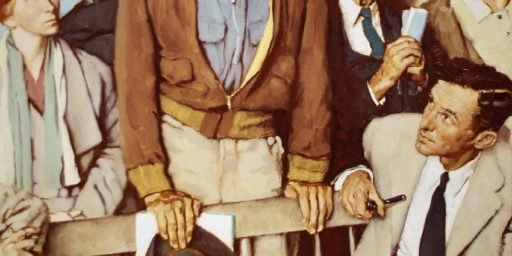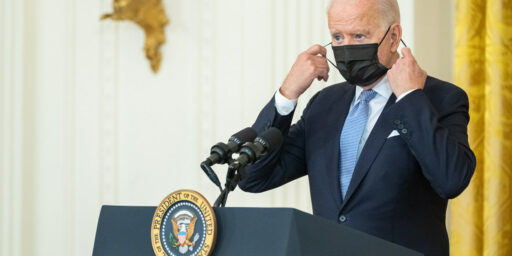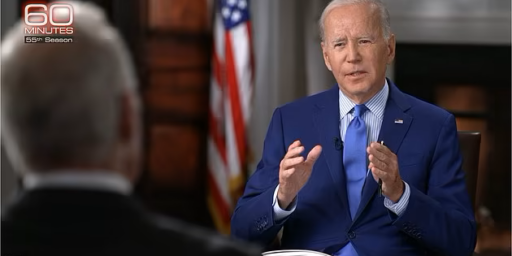Culture and Institutions, Part 1
A partial response in the context of a complex topic.

Kingdaddy’s very thoughtful post on the role of political culture has done what good essays do, it has gotten me to thinking. I have actually started two (now three) longish posts on the subject. There are some very big ideas and questions about how one studies and analyzes politics in debates over culture as a main frame of discussion or whether institutions should be (or, indeed, whether something else entirely is), as well as how those frames can be combined.
Inherent in this discussion, I think, is the tension between behavioralism and the new institututionalism (which is not especially new anymore and is linked to the rise of rational choice theory in the discipline). Behavioralism emerged in the 1950s and was a response to traditional (the old) institutionalism of the early 20th Century.* Several key contributions to the literature by behavioralists focused on culture, such as Almond and Verba’s 1963 work, The Civic Culture. That conflict is a lot of inside baseball talk and why I have labeled this one as “Part 1” as I do not think this is the last post on this subject.
A major force in the behavioralist revolution was David Easton, a true giant of political science and a professor both Kingdaddy and I had at the University of California, Irvine. Easton was famously not concerned with the specific functioning of the state apparatus (i.e., institutions) which he placed in a “black box” in his very influence systems theory approach to politics. Indeed, it looked more at the general political environment (which would include, if memory serves, culture) than it did specific institutions.
If we are going to delve into my own intellectual biography, I can attest that believing that one needed to know what was inside the black box led me to find the new institutionalism a more fruitful area of study as I thought the contents of said black box were exceptionally important.
But, this is already far more inside baseball than I intended to go. Let me address one very specific claim in Kingdaddy’s post
If you went back 20 years and said, “We know a deadly pandemic is coming,” we would have expected partisan bickering to lessen, and people intoxicated on their self-righteousness to sober up. We would have expected a collective response to a threat to all Americans. We would have been horrified to see epidemiology turned into a partisan issue. Clearly, at some point, we crossed a very dangerous threshold of tribalism. To be fair, “we” does not include all Americans, but a significant minority who sees everything through the lens of us versus them, good versus evil, the well-intentioned versus the badly-intentioned, the patriots versus the traitors, the warriors versus the weaklings.
Now, let me note that, clearly, I think culture has some significance in explaining our current predicament, as I noted in my post on the politics of masks. I think that we can reasonably note that the US has a significant cultural strain of individualism that makes addressing problems collectively difficult.
I also agree that tribalism is a huge problem (I am just not sure it is specifically a problem of a broken political culture as much as it is inherent to human nature, if not even biologically hardwired in our brains). And, I agree that we are talking about not all Americans, but a subset thereof.
However, if we are talking a subset, the issue is not then, American culture writ large, it is perhaps more about intra-cultural conflict than a broken culture per se. That is, it is more a tribalism problem than a cultural one. But the problem to me there is better explained, in my opinion, by a model that looks not at culture, but aggregated interest competing for power (and, therefore, how parties form and compete). And that leads us to think about how power is won and lost. Which leads to institutions.
First, Kingdaddy is right: twenty years ago we would have assumed that Americans would have pulled together around the threat of a pandemic. Indeed, I would go one better and state we would have thought that four years ago (maybe even less than that).
So, is the problem a vast cultural one or is it specifically about the occupant of the White House and the government he formed by hiring the very best people?
Would Jeb Bush, Marco Rubio, or Ted Cruz (even Mike Pence) have approached the pandemic in the same pathetic, sociopathic way that Donald Trump has?
I will admit that this is all about counterfactuals, but I think we would mostly agree that almost any other president, regardless of tribe, would have approached this differently (and more competently).
And the reason that so many Americans go along with it is because we know that mass behavior is directly influenced by elite behavior, especially when the elite in question is in the same tribe (or, in this case, party). We know that partisans engage in motivated thinking and rationalization. And we know that at the moment that the mass media environment helps reinforce tribal world views.
(I am not sure that any of this is new–the Red Scare of the 1950s and the whole John Birch Society nonsense of thbe 50s and 60s show, to hearken back to another Kingdaddy post, the history of conspiracy theories in US politic).
Second, so how did we get Donald Trump as president? Through flawed institutions.
The nomination process of the Republican Party meant as Steven Levitsky and Daniel Ziblatt discuss in detail in How Democracies Die that the party failed to act as a gatekeeper in our politics as it did when Henry Ford wanted to run for president back in the 1920s.
Ford, a proto-fascist who had some serious popular support, was blocked from pursuing a major party nomination because party elites controlled the nomination process at the time. Trump, a proto-fascist of a type, was nominated by a major party whose elites lacked control of the label. A crowded field coupled with rules that rewarded an early plurality winner all allowed one faction of the GOP to nominate Trump. And once nominated, the party had no choice, if it wanted access to power, to fall in line.
Then, an antiquated electoral system allowed Trump to win the presidency without winning a plurality of natioanl votes because of roughly 78k votes distributed over three states (MI, WI, and PA).
He has gone on to govern despite only having positive public support for an extremely brief period of time (roughly two weeks).
Does this sound more like a failure of culture or a failure of institutions?
This is not to let culture, or subculture, off the hook. Nor does it elide tribalism. But rather than culture eating institutions for lunch, institutions can either stop or fail to stop minority subcultures from eating all our lunches.**
Moreover, I am not sure when American culture, as a whole, was ever not broken in some way, which makes me skeptical of the whole framing. But on a less glum note, I think that we, as a whole, still agree on more than seems to be the case at the moment (the fact that we, as a general proposition, will show up to vote in November, even as we bicker over things like vote-by-mail, voter ID, and the like, is testament to this fact).
More later.
*Kingdaddy’s reference to the failure of the Weimar constitution is a classic example of a critique of the old institutionalism by behavioralists because those traditionalists were paying attention only to the words on the page.
**I think Drucker’s point is valid for organizations, but I question the applicability at the scale of a country. I may return to that later.






Hmm, a lot to digest here. I believe you are accurate in blaming the failure of institutions for Trump, rather than culture. First, there is not really an American culture. Yes there is popular culture, but that is fun house mirror, manipulated by elites, where each of us takes what we want and for outsiders, it is so general that it is mostly meaningless.
Tribalism has always existed and exists in every nation. When in college (early 70’s) I remember reading analysis of why European countries developed extensive social welfare systems after WWII and the US hadn’t. The quick and dirty answer was in part the American individualist myth, but the overwhelming reason being that citizens of European countries believed themselves a coherent national group, so what was good for one benefited all. While in the US, a nation of immigrants, there was suspicion of programs that may help the ‘other’ and in particular, Blacks.
For a long time tribalism was suppressed. There were few immigrants and what there were came from eastern Europe and were celebrated for escaping Communism, ethnic rivalries had quieted and what had been intense hatred of the Irish, Italians, Poles etc faded away with all of European heritage becoming ‘white,’ Christianity was seen as the ‘normal’ religion.
That changed with the new century. Technology and globalism destroyed thousands of jobs and the new jobs required higher skills in a different geography, immigration skyrocketed, elites like Charles Murray and Kevin Williamson, began describing white working class citizens left behind by these changes in the same derogitory terms that they described poor, urban Blacks. Previously hidden social groups, began demanding acceptance and recognition, that was perceived as an attack on Christian values. All this led to the big tent of ‘whiteness’ cracking with a talented group of charlatans eager to take advantage and monetize the inevitable conflict.
As a minor note, it doesn’t appear that Ford tried to run for president; he tried to run for the Senate in 1918 as a Republican, was defeated in the primary, and then ran as a Democrat in the general, was defeated, and then harangued his opponent out of a second term because he’d been out-spent.
This is coming entirely out of Wikipedia, so if someone has better information, I’d be interested to have more examples of effective party gatekeeping.
In the past 25 years, the GDP of the USA has tripled, the Dow Jones has nearly quadrupled, but median household income has been stagnant. CEO income has gone from 60 times to 300 times the average worker. Surely every median worker who is holding on knows a relative or neighbor who is sinking. We have a slow motion immiseration of working Americans. This is fertile soil for the politics of resentment. Scapegoating immigrants is easier than putting in a more even income distribution.
There is a model in risk management circles called Swiss Cheese proposed by psychologist James Reason. According to this metaphor, in complex systems, hazards are prevented by a series of barriers. Each barrier has unintended weaknesses, or holes – hence the similarity with Swiss cheese. These weaknesses are irregular. When by chance all holes are aligned, the hazard occurs.
I’ve found this model helpful framing as I’ve thought about your question on how we got Donald Trump as president and how, once president, Trump has managed to corrupt so much in so short a time. To my mind, it doesn’t come down to culture or institutions – there are inherent weaknesses in each. In the case of Trump, the weaknesses lined up.
That said, the crux of the matter lies here…
You say as much, but the GOP had a choice, but it had to be willing to forgo power in order to make that choice. And not forgo power for all time, mind you, but for a single election cycle until it would have another go at it. And the GOP has had a choice (throughout Trump’s term) between upholding their oath to the Constitution and some diminishment of their power at this point in time.
It is the weakness of character in some of our leaders that has aligned with the holes in our culture and institutions which has brought us the hazard we are enduring now. It didn’t have to be that way.
Either you are using the word “institutions” in a technical sense that I am unfamiliar with, or I disagree.
We got Donald Trump, and the current party is in power, because that party was able to manipulate information so as to hoodwink a large fraction of the voting public into voting not only against American interests, but also against their own parochial interests. To me, that’s not about institutions, unless you include the free press and the media, and the checks and balances on their behaviors, under the heading of “institutions”.
The Constitution, the norms of Congressional debate and legislative practice, the Electoral College, etc. etc. were not adequate to create a situation in which blue-collar Christian whites will turn out in droves to vote for a man who stiffs every contractor who works for him, panders to Russian interests, and lusts after his own daughter. Winning the InfoWar (to coin a phrase) was both necessary and sufficient.
@DrDaveT:
You may see it the same way, but I would qualify this a bit. Confining the InfoWar Theater to the 2016 election is a mistake. The conditions that made victory in ’16 sufficient were created over decades of manufacturing grievances.
The same tactics that re/elect people like Cruz are the reasons that Trump was attractive to his base. Trump basically just said what talk radio hosts and evening television commentators were saying for years. The GOP created reactionaries to maintain power; it should surprise no one that it blew up in their faces.
—
“Institution” often refers to things beyond formal organizations, including cultural norms and practices. In this sense, the media ecosystem would be an institution.
@Slugger:
Especially for a party sponsored by Koch, Mercer, Adelson, et al whose biggest concern is they might be asked to pay taxes to support takers and losers. (Actually second biggest concern for Koch, after the fear we might do something about AGW.)
@David S.: Levitsky and Ziblatt (44-46) talk about the possibility of a Ford presidential run:
The passage goes on to talk about polling that showed Ford’s popularity, but also the lack of interest in Democratic Party leadership circles in having Ford as a candidate (and back then that was where the power was.
@Kurtz: I certainly was not restricting my analysis to 2016. Trump is a particularly unpleasant symptom, but the disease is chronic.
Yes, but when it gets to the point that it’s hard to name anything that isn’t an “institution”, saying that institutions are the problem (or the cure) becomes meaningless. I had the sense that Dr. Taylor meant something more specific and limited.
@DrDaveT:
Sure they are. They all helped create a situation in which there were two choices in the context of a country used to only two choices. When he was able to successfully navigate the primary system and become one of those two choices, he had a chance at the presidency.
And the Electoral College specifically made it possible for him to win the presidency.
I understand that you think that social media/the “infowars” are the main explanation, but I fail to see why that negates these basic points.
@DrDaveT:
Institutions can be a fairly expansive concept, to include informal institutions.
But I think I am being pretty clear here in the context of dialog with Kingdaddy’s post. He is arguing that a broken culture has brought us to this moment and I am arguing that the main reason we are at this moment is because of institutional failure. Specifically: failure of the major party nomination process and of the Electoral College. Beyond that the structure of our institutions, to include the electoral system and, therefore, the party system make governance almost impossible and render textbook checks and balance somewhat inert.
@Scott F.:
I don’t disagree with the basic point, but I think it is extremely important to note that “The GOP” is not a single entity. We are talking here about a massive collective action problem wherein individual politicians are playing a game in which they risked their own political careers to defect from their party.
Part of the reason I keep bringing up the institutional failure of the nomination process is because it underscores the lack of an actor, or set of actors, who could act as a real gatekeeper.
The calculation is both cowardly and quite understandable. Each politician had to decide if they could be re-elected bucking their own party’s nominee and, moreover, if they would have any influence going into 2017 if they did and managed to be elected. Plus, they could each talk themselves into the notion that Trump would grow into the role and would certainly nominate normal people to cabinet positions. At that point, in for a penny, in for a pound and we are where we are.
This is not to excuse, but to explain how we get where we are.
@Steven L. Taylor:
It’s because the factors you are pointing at are neither necessary nor sufficient. Without Fox News (and Russian social media interference), Trump doesn’t win and we aren’t having this conversation, even were everything about our party and nominating system the same. With a sufficient fraction of the country believing what they are told by Fox News (etc.), nearly any system would suffice to elect an almost arbitrarily bad choice. The appeal to institutions is unnecessary; it adds nothing to the explanatory power of the hypothesis.
If you feel that, in an identical media environment, Trump could not have been elected under a different set of political institutions, I’m willing to hear the argument. If you feel that the current media environment is somehow uniquely enabled or caused by our party and nomination systems, I’ll listen to that argument too, though it seems very unlikely to me. I don’t think you could convince me that Trump could have won without Fox News etc., though (again) I’m willing to listen to any argument you make.
Ironically, I have always argued that institutions matter. But in the present case, it’s like arguing that diet and exercise matter for heath. That’s true — but irrelevant in the event of being shot in the head. America has been shot in the head.
@DrDaveT:
This is quite easy: if we had a national vote with either a plurality winner or IRV/two-round system we wouldn’t have Trump.
Likewise, if GOP elites had more control over their nomination process, they would not have chosen Trump.
“So, is the problem a vast cultural one or is it specifically about the occupant of the White House and the government he formed by hiring the very best people?”
Unfortunately I think the former is the case. The decine in contemporary American values, lack of respect for it’s institutions, and uneasiness with it’s neck breaking progress, did not start with Trump, nor will it end when he is gone. Trump is a particularly bad existential threat, and lesser squabbles are best put on the back burner to tackle it, for now. We need to put out the fire that is burning down the house now Hopefully intellectuals can debate the specific causes of the mass Trump psychosis in January.
“And the reason that so many Americans go along with it is because we know that mass behavior is directly influenced by elite behavior, especially when the elite in question is in the same tribe (or, in this case, party).”
I am not of the mind that the parties today are run by, nor under the influence of, anything resembling elites. Americans today, by and large, seem influenced by either anti-elites on the far right, or psuedo-intellectuals on the far left, and their voices loom large in the major parties. They both have a common hatred for actual elites and intellectuals because they pose a threat to their respective “outrage” gravy trains on social media, 24 hr. news networks, and college campuses. They are attracted to people that are constitutionally incapable of providing effective leadership in our complex modern Democracy, a fact brilliantly illuminated by the current occupier of the White House. This is why there is such a collective sigh of relief when we wind up with centerest beaurocrats heading up the other team’s ticket, even with less than stellar records on the pressing issues of today, like social justice, and feel fortunate.
“Second, so how did we get Donald Trump as president? Through flawed institutions.”
The best tools, intellectuals that care about our national crisis have, are books, and blogs, such as OTB. As you know, the same medium that can spread mass stupidity at nearly light speed can also spread intelligence, and solutions to problems. I look forward to more of your enlightening insight, and ideas on fixing our painfully flawed institutions in future posts.
@Steven L. Taylor:
I just finished Rick Perlstein’s Before the Storm, his history of the Goldwater campaign. He paints a scene of the Republican governors meeting and telling each other not to worry, the Establishment will stop Goldwater, followed by a moment of realizing wait, we’re the Establishment.
@Steven L. Taylor:
Note quite: I said could not, not “would not have”. Trump got enough of the popular vote that it is easy to believe that he could have gotten enough to win outright had a few other things gone differently, even though such a thing was unthinkable a decade ago.
IRV is an interesting question, but I am much less convinced than you that IRV would have eliminated Trump faster than it eliminated the Rubios and Cruzes and JEB!s of the race. I think a lot more people were considering Trump as “the other option” than were strongly for any one of the other candidates.
And, to my earlier point, had the “conservative” media environment been in 2016 what it is now, I think Trump would have swept away the GOP primary opposition without a significant fight, and direct popular vote or IRV would not have saved us. (I want to say “information sources trump institutions” as the most concise way of putting it, but The Donald has forever ruined that particular locution…)
@Steven L. Taylor:
Indeed.
For this discussion, I would clarify I mean “the GOP” as elected Republicans, particularly those in the US Congress. And as you note, “understandable” can fairly describe Republican decisions through the nomination process and into the early parts of Trump’s term. While there was an opportunity to influence the broader administration, whether Trump grew into the job or not, it was understandable to stay on the side of Trump. I wouldn’t even say that alignment at that point in time was necessarily that cowardly.
But, as Trump’s term progressed and his unfitness for office became clearer and clearer, “understandable” faded away and “cowardly” took over. What I’ve witnessed doesn’t seem a collective action problem, but rather a surprising level of solidarity. Through his petulant shutdown of the government, his tariffs, his coddling of Kim Jong-Un, his buddy/buddy with Putin, his impeachment, and ultimately his epic failure with the pandemic, Congressional Republicans have formed a wall of unbending alliance with Trump.
What for? Advancement of the Party agenda? Trump doesn’t give a damn about whatever passes for GOP policy these days, except maybe tax cuts. Conservative Principles? Trump has blown up GOP tenets again and again. Judges have paid off, but destruction of the Republican brand seems a pretty high price to pay for seats on a supposedly independent branch of the government. I don’t remember anything like this lockstep fealty from the allied tribe during the two Bush, Clinton or Obama administrations. There have always been some in-party members making at least modest noise when their president has behaved badly.
Trump was never going to be a good president, but he could have been elected then held to a single term of mediocrity. But, the free fall in our international standing, the rise of white supremacy, the blatant grifting, and the massive scale of the damage from COVID? Trump couldn’t have done all that without the solidarity of his Congressional enablers.
That’s not institutional failure. That’s failure of character.
@DrDaveT:
This strikes me as a remarkable goal-post moving bit of sematics, to be honest.
@Scott F.:
Personal career advancement/staying in power. I don’t condone it, I just explain it.
@Scott F.:
They are not mutually exclusive categories.
In all honesty, I don’t expect human beings, let alone that subset known as politicians, to behave in a way that exhibits strong character. Indeed, I expect the opposite (regardless of my preferences for it to be otherwise).
@Steven L. Taylor:
Yes, institutional failure, cultural failure, and failures of character are not mutually exclusive. That’s where I was coming from with my reference to the Swiss Cheese model earlier. The last 4 years represent an awful alignment of all these failures.
I hope this is despair speaking, as my experience is different. Frankly, human beings exhibiting exceptionally strong character are all around me – in my family, in my workplace, in my community, in some public figures I admire.
Perhaps the discovery of politicians of strong character starts with an expectation that we deserve as much.
@Scott F.: The Swiss Cheese model was apt, yes.
In regards to character, I take the point, and yes, there are plenty of people who act with good character.
But, I think what I am getting at is that history quite clearly tells us that simply relying on the character of persons in government (or other complex systems) to save us is not a good idea. That concept goes back to the Greeks at least and puts me in the mind of Madison in Fed 51: “If men were angels, no government would be necessary.”
This is especially true when we need coordinated, collective character to save us.
@Scott F.:
BTW: I think that the best that we can hope for, in terms of this issue, is to create systems that hold politicians more accountable than our current system does. This is largely why I go on and on about representativeness in terms of the electoral system and the problems of primaries for nomination.
If most members of Congress run in safe districts with not competition, where it the pressure for, to use the term, politicians of good character?
And if the only electorate they have to please to stay in power is in the primary (i.e., a small, very narrow slice of the districts, who might see character differently, or might be irresponsible any number of reasons), then there is no broader accountability.
To be clear: I want everyone in government to be of good character, but if the rules are such that there is little broad accountability, we get what we get and the poor incentives to good behavior that go along with it.
@Steven L. Taylor: Thank you for this exchange, Dr. Taylor. I believe we are fundamentally in agreement.
You had convinced me long ago and immediately with your observations on the lack representation in our electoral system and the weakness of parties as gatekeepers. You might remember my responses to you have tended toward “but what can we do about it?” This is only fitting. You are a political scientist and your role is to observe and understand. I am a problem solving expert and my role is to understand, then implement improvements. “We get what we get” doesn’t set well with me.
I guess that is why I’m drawn to the “all of the above” framework as a potential path to solution. Yes, in order to have a better, more representative democracy in US government, the rules would have to be changed. The rules can only be changed by politicians and will be changed only by those of good character willing to go against the incentives and interests that brought them to power in the first place. And, I imagine, the only way we, the people, can change the balance of interests and incentives is a cultural call to protest, in public forums and on the streets, for the government we deserve.
Institutions made it possible for a man to win the White House with just 46% of the vote, but they did not cause 46% of voters to vote for Trump. Subtract institutions, you still have 46% of the country ready, indeed enthusiastic, about voting for a racist criminal. Subtract the 46% and the institutions are irrelevant.
The fault is not primarily in our stars or our institutions, but in us. People have agency. People make choices. No one had a gun to their head in 2016. So long as nearly half the country is ready to support an overt racist, misogynist, traitor and criminal, you can do whatever you like with institutions and we will still have a sick country.
@Michael Reynolds:
But if you subtract institutions you do not end up with a situation in which voters are given two choices motivated by decades upon decades of identity linked to party label.
If you add in different parameters you do not get the same result. If Trump had run as a third party candidate he would not have gotten 46% of the vote. That should tell you something about the outcome we got.
Any R would have gotten somewhere in the same range of votes. This is an especially important fact to keep in mind when assessing the behaviors in question and what Trump’s vote totals really mean.
And most of the people who voted Trump in 2016 were voting for lower taxes, anti-abortion judges, and the like as their party label informed them.
This part of it cannot be ignored, even if I agree with you that they all should know better.
@Scott F.: Yes, we are in basic agreement and I appreciate the thoughtful interchange.
I suppose at the heart of my deflection about character is this: I reject the notion that we can solve our problems if we just had better people in office. This is not because I don’t want better people or that I think better people wouldn’t make things better, it is you rely on better people to make things better it also means worse people make things worse. I think you have to build safeguards against that kind of stuff.
And yes, it isn’t easy and those currently in power resist change.
@Michael Reynolds:
I am going to double-down on this. Yes, yes they did.
Again: if you give people two choices in the context of over a century of partisan ID being the main way people make electoral choices then yes, you are going to get a substantial number of people to vote for the R and the D regardless of who they are or what they say–especially the first time the R or D is a deviation of the type Trump is.
And while I think DrDaveT overemphasizes this variable, the above is made even truer when the two sides have their own media bubbles.
@Steven L. Taylor:
I agree that better institutions would likely have stopped Trump. But only ‘likely.’ A better electorate would have made that safeguard irrelevant. IOW we need strong institutions because people are assholes, if they were not assholes we’d be fine with weaker institutions. (The UK managed to vote for Brexit and elect BoJo, with a very different set of institutions.)
Over time institutions fail to one degree or another, victims of old age, negligence or malice, and then we fall back on culture and character.
If I may indulge in some metaphor, institutions are the immune system, idiot voters are the pathogen. We can blame the immune system or we can blame the pathogen.
I don’t know. American academics would point out that Latin America had a political culture based on personalities and then Trump, that had all the worst traits of the worst Latin American politicians, was elected President of the United States of America.
And I’m seeing issues with prolonged lockdowns and even mask mandates even in countries that had boring technocrats as heads of governments.
@Andre Kenji de Sousa: Two quick thought:
1) I have never been a fan of culture-based arguments about LA politics either (maybe I will comment further at some point).
2) There are real cost of lockdowns. But, of course, things like losses in the service industry, and especailly tourism were going to happen with official lockdowns or not.
@Steven L. Taylor:
1-) I did not say that you were. I pointed out that these arguments about influence of culture in political outcomes does not have a good record, and yes, I know that we don’t disagree here. 🙂
2-) Yes, but in all countries that had to deal with prolonged outbreaks of Covid , with long periods of restrictions, you had the population acting in a very similar way(It was more or less predicted by behavioral experts in March).
In this sense what we are seeing in United States is nothing unusual from what we saw in Latin America and in Europe.